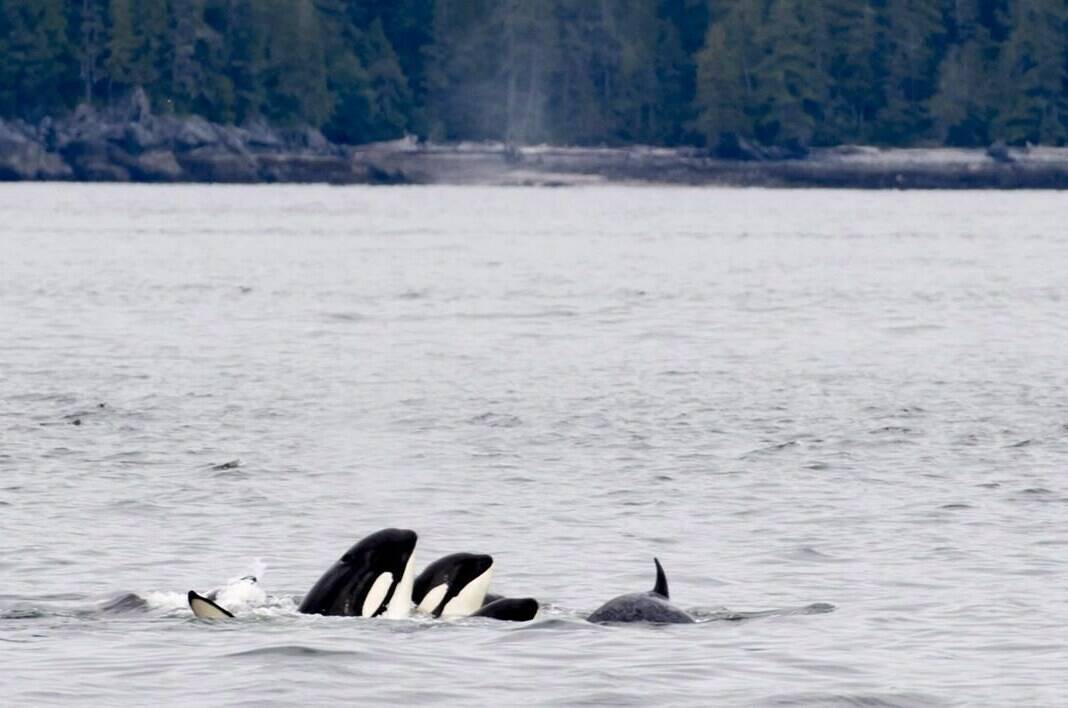The federal government has announced salmon fishery closures and mandatory speed limits in areas where southern resident killer whales forage and travel in the ongoing effort to protect the endangered species.
A statement from Transport Canada says the measures off Vancouver Island are aimed at protecting the whales from noise, contaminants and improving their access to prey.
Until Nov. 30, all vessels must slow down to a maximum of 10 knots in two speed-restricted zones near Swiftsure Bank and no vessels or fishing are allowed in interim sanctuary zones off South Pender Island and the southeast end of Saturna Island.
Recreational and commercial salmon fisheries will be closed both this year and next year in the whale’s key foraging areas along Swiftsure Bank from July 15 until Oct. 31 and around the mouth of the Fraser River from Aug. 1 to Sept. 30.
The measures are part of a series of actions the government has taken in the last six years to protect the remaining 74 whales, including that vessels stay at least 400 metres from the orcas and that local whale-watching groups not offer tours of southern residents.
The federal government is also providing $3.2 million over two years to the Vancouver Fraser Port Authority to continue a program that encourages ship operators to slow down or stay distanced while travelling through key areas of southern resident killer whale habitat.
Another $300,000 has been budgeted for an alert system that notifies large commercial vessels when they may be near whales via an online app.
READ ALSO: Canada’s ocean noise strategy delayed as threat to marine life clarifies
READ ALSO: Protected areas, fishing bans to help B.C.’s threatened southern resident orcas

